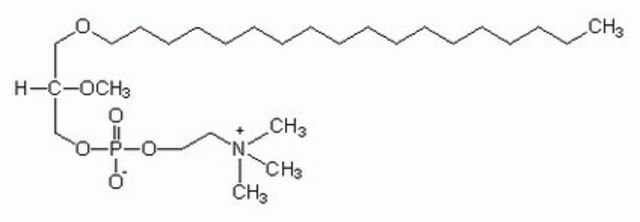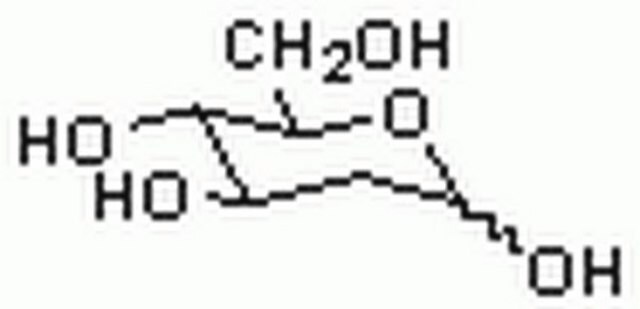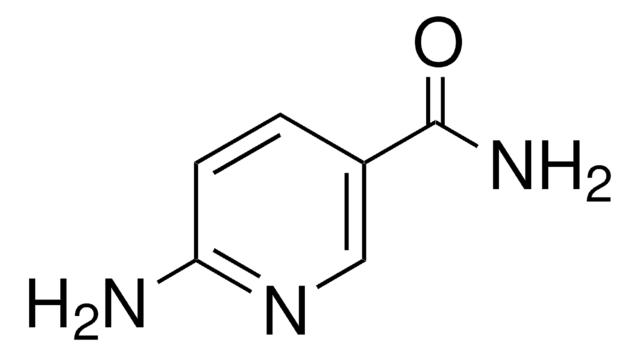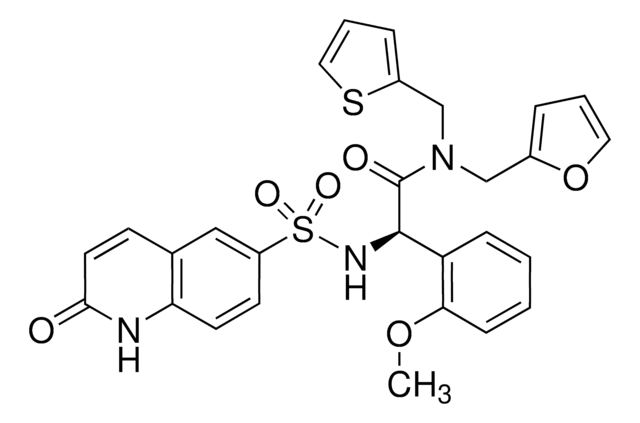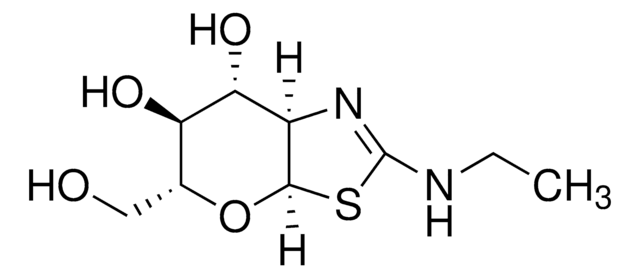SML2702
ST045849
≥98% (HPLC)
Synonym(s):
2-[(4-Chlorophenyl)imino]tetrahydro-4-oxo-3-(2-tricyclo[3.3.1.13,7]dec-1-ylethyl)-2H-1,3-thiazine-6-carboxylic acid, 3-(2-Adamantanylethyl)-2-[(4-chlorophenyl)azamethylene]-4-oxo-l,3-thiazaperhyd roine-6-carboxylic acid, TT04
About This Item
Recommended Products
Quality Level
Assay
≥98% (HPLC)
form
powder
color
white to beige
solubility
DMSO: 2 mg/mL, clear
storage temp.
−20°C
SMILES string
O=C(N/1CCC23C[C@H](C4)C[C@H](C[C@H]4C3)C2)CC(SC1=N/C5=CC=C(C=C5)Cl)C(O)=O
Biochem/physiol Actions
Storage Class Code
11 - Combustible Solids
WGK
WGK 3
Flash Point(F)
Not applicable
Flash Point(C)
Not applicable
Regulatory Listings
Regulatory Listings are mainly provided for chemical products. Only limited information can be provided here for non-chemical products. No entry means none of the components are listed. It is the user’s obligation to ensure the safe and legal use of the product.
JAN Code
SML2702-BULK:
SML2702-5MG:
SML2702-25MG:
SML2702-VAR:
Certificates of Analysis (COA)
Search for Certificates of Analysis (COA) by entering the products Lot/Batch Number. Lot and Batch Numbers can be found on a product’s label following the words ‘Lot’ or ‘Batch’.
Already Own This Product?
Find documentation for the products that you have recently purchased in the Document Library.
Our team of scientists has experience in all areas of research including Life Science, Material Science, Chemical Synthesis, Chromatography, Analytical and many others.
Contact Technical Service



